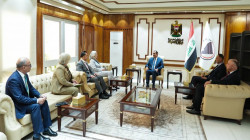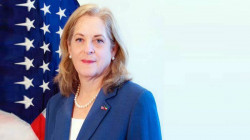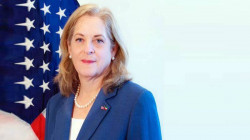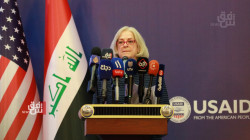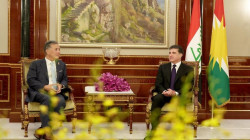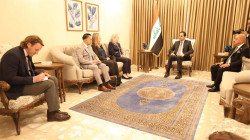The U.S. reaffirms support to ensure an inclusive Iraq for all religious communities
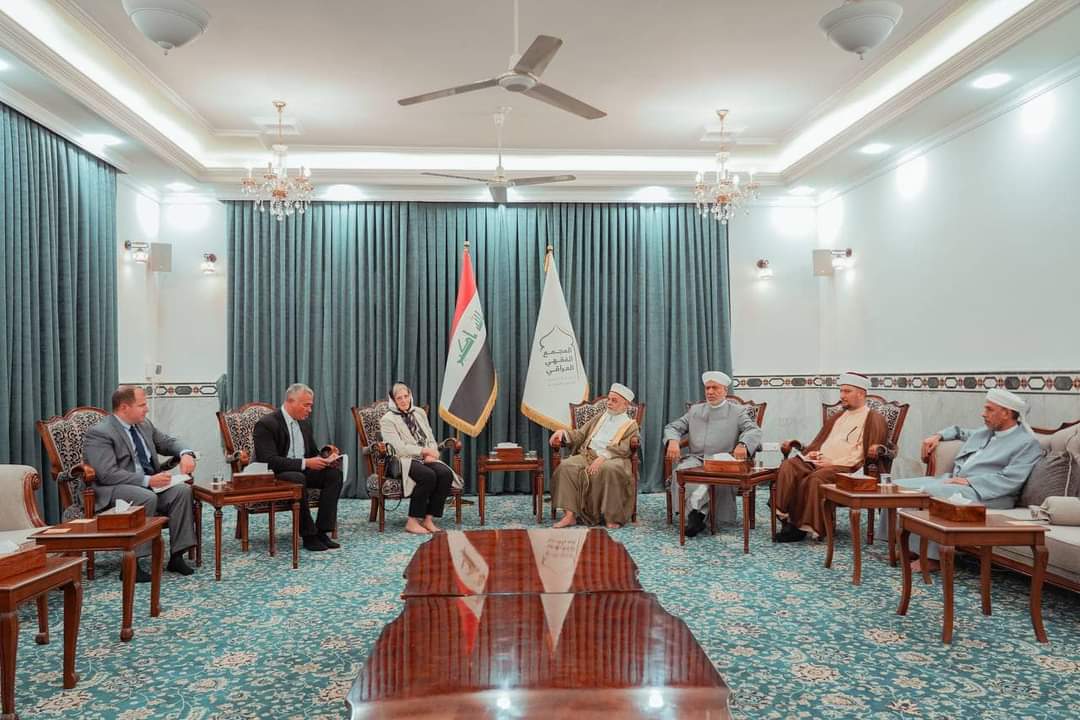
Shafaq News/ The U.S. Ambassador to Iraq, Alina L. Romanowski, hoped that Baghdad would form a government for the people's interests.
During a visit to the Sunni Jurisprudential Council, the Ambassador met with members of the supreme body.
"Today, I met with leaders of the Sunni Jurisprudential Council and reaffirmed U.S. continuing contributions to the recovery of Iraq's liberated provinces. The United States supports efforts to ensure an inclusive Iraq for all religious communities." Romanowski said on Twitter.
In turn, the Council said that the U.S. top official reaffirmed Washington's support for Iraq and hoped to form a national government.
A member of the Supreme Council, Abdul-Sattar Abdul-Jabbar, said, "Iraq is going through a critical stage that requires local and international efforts to overcome it," adding, "the Jurisprudential Council called on everyone to give priority to the national interest and to adopt a constructive dialogue to overcome the crisis."
Abdul-Jabbar demanded from the great powers, particularly the United States, contribute by offering significant projects for the development of Iraq in different fields, including health and economy.
On Tuesday, the U.S. Embassy in Baghdad called the Iraqi parties for dialogue and to prevent violence.
"The United States supports recent calls urging all parties to participate in constructive national dialogue that could lead to de-escalation of current tensions." The Embassy said.
"We reaffirm our support for peaceful protest and encourage all parties to adhere to non-violence and the rule of law in exercising their rights under the constitution." The Embassy concluded.
Last Saturday, The U.S. Embassy expressed concerns about reports saying "using violence" against protesters in Baghdad.
"We are closely monitoring the unrest in Baghdad today and are concerned by reports of violence." The Embassy said.
"The right to peaceful protest and freedom of expression is enshrined in the Iraqi constitution. Therefore, we join the call by parties across the Iraqi political spectrum to remain calm, abstain from violence, and resolve their political differences through a peaceful process guided by the Iraqi constitution." The Embassy added.
Tensions had worsened among the Iraqi parties, mainly the Shiites, since the October election, when al-Sadr's movement emerged as the biggest bloc with 74 of parliament's 329 seats.
After failing to overturn the result in the courts, the Iran-backed factions set about stymying al-Sadr's efforts to form a government that would include his Kurdish and Sunni allies but excludes groups he described as corrupt or loyal to external forces.
Despite their diminished numbers in parliament, the Iran-aligned groups managed to frustrate al-Sadr by denying the two-thirds quorum needed to elect a Kurdish head of state - the first step towards forming a government.
Frustrated at the deadlock, Sadr instructed his lawmakers to quit parliament in June. The move ceded dozens of seats to the Coordination Framework, meaning it could try to form a government of its choosing, though this would risk al-Sadr's wrath.
Al-Sadr's rivals then floated a candidate, Mohammed Shia al-Sudani, seen by al-Sadr's supporters as a Maliki loyalist. This step appears to have been the final straw for Sadr supporters, igniting the protests.
Al-Sadr, the arch-foe of the Shiite Coordination Framework, instructed his followers to push for a complete overhaul of the political system, including a new constitution, and expel the country's elites, whom he condemned as "corrupt."
In response, the Coordination Framework said it will defend "the legitimacy of the Iraqi state" against Muqtada al-Sadr's calls to "overthrow the state and constitution," calling for mass counter-demonstrations today.
